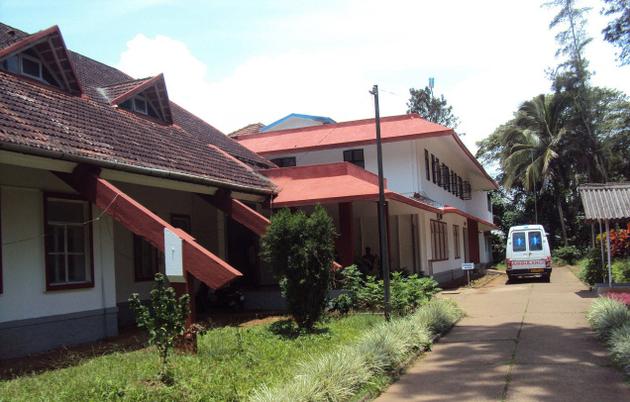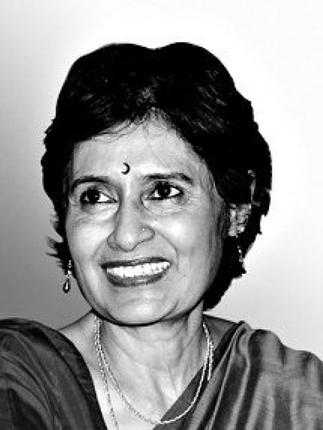
Hooked to the silence, slowness and familiarity of Ammathi, this town in Coorg suits me fine
It is 20 minutes since I got out of bed to the alarm bell of our cat wanting to go out. I’m seated before my laptop, with a tumbler of filter coffee by my side. I listen to the birds, of which there are at least a dozen varieties in our garden. When a two-wheeler (a nurse’s husband leaving for work a little before 7am) drones outside and my husband begins to get restive for his second cup of coffee, I switch off the laptop. The next half-hour is reserved for sitting by the window, doing nothing. By half-past eight, I’m in the hospital.
All sweetness and light? No. Today, for instance, in the emergency ward there is a man who fell while plucking pepper and broke his back; a suspected cerebral malaria, which can kill in quick time; an attempted suicide (using pesticide) and a woebegone tribal whose wife tried hacking off his leg with an axe.
A surgeon in a rural hospital must treat every type of illness that comes in: broken ankles, diabetic ulcers, scorpion and snake bites, hernias, tumours, lungs with tuberculosis, bleeding guts and gangrenous limbs, suicide attempts and family quarrels ending in mental and physical damage. I love the unpredictability and the challenges that keep coming at us. The day over, I come home and, after half an hour of watching television, I am in the kitchen making tea, anticipating the quiet hours I have before bedtime.
Ammathi is a little town in south Kodagu (Coorg), with two-and-a-half streets, a post office, a hospital, a convent and a government school, a police outpost, bank, vegetable vendor, three liquor shops, one of which is also the newsagent, a bakery and others that sell everything from lipstick to cattle feed. Many houses huddle alongside the shops, while larger bungalows hide inside coffee estates that stretch in all directions beyond the town.
Coorg offers easy, lazy holidays of doing nothing besides sighting elephants, enjoying the silken air of my childhood, or what’s left of it, feasting on Kodava food like pandi curry (pork curry), akki otti (rice roti), kadambutoo (rice dumplings) and crab. Visitors always say they are dying of envy for us locals but hardly ever wish to stay longer than a weekend.
“How do you spend your time here?” we’re asked. “What do you do on weekends?”
Weekend? Mine is half a Sunday. This week, I had to forsake my half hour of television and trot back — on a Sunday evening — to the wards: an eight-year-old girl with serious injuries that happened at home. It might even be a police case…
“Visitors always say they are dying of envy for us locals but hardly ever wish to stay longer than a weekend”
To make a living doing what you really enjoy is a blessing to be preserved at any cost. Once a week we go to the Sunday market to buy vegetables, although half of what we consume comes from our own garden and from my doctor friends, nurses and family. Everyone knows everyone else in our community and exchanging produce is common practice. When we drive, we can sometimes give a lift to a woman or children waiting for a bus along the way, a custom long abandoned in most urban areas for understandable reasons.
Fresh sardines from across the hills bordering Kerala are on sale in town; if you are willing to indulge in a shady deal, you can have venison, partridge, rabbit or wildfowl on your dining table. All that enviable brawn and swagger that you see in our Kodava men is thanks to the muscle-building properties of wild meat, no doubt about it.
Our town has progressed from my childhood days of oil lamps and lanterns. Years ago came the outsiders who climbed the hills of Malanad to sell sardines and bananas. These Maplahs soon began to trade in oranges, cardamom and pepper. They made money, built homes (at first modest little houses that were always either pink or green) and put down roots. These hard-brained Malayalis have cornered most of the trade and help sustain the economy. With the recent flood of migrants from the north, we Kodavas have been reduced to a minority. And that we do not like.
But signs of affluence are everywhere. On the busy streets, cars outnumber people. Ammathi boasts 18 auto-rickshaws. Most accidents that take place here involve one of these.
My patients are puzzled when they hear that besides doctoring, I ‘write stories’. Fellow writers feel the same about my profession. Recently the friend of a friend who was holidaying in Coorg with her family brought her daughter to me with an abscess that needed to be drained. She asked repeatedly if it was possible to do it here and later when the girl was well, came to thank me. “We’re so lucky that you are here,” she gushed. “We were planning to cut short our holiday and go back to Mumbai for treatment.” City people always think that medical help in rural areas will be non-existent or sub-standard.
Habits die hard and we’ve got comfortably hooked to silence and slowness. I like living in this place with its haphazard development, elephants on the roads and the long journeys to some urban paradise for a few days of ‘comfort’. I want to be able to go to the shop nearest home and buy two eggs for tonight’s dinner and owe ₹8 to the shopkeeper to be paid soon enough when my husband needs an urgent box of matches, or the shopkeeper brings his child to me with stomach ache.
When I vote in the next elections, I want to enter the two-roomed, tile-roofed panchayat office and stand in line next to friends, cousins, patients, the gardener, plumber and the red-eyed local drunk and cast my ballot. I hope I will never have to face the jolt of living in any place that is bigger. Smaller is all right. Very much all right.
(In this monthly series, authors chronicle the cities they call home.)

Kavery Nambisan is a surgeon and the author of A Town Like Ours
source: http://www.thehindubusinessline.com / BLink / Home> Read > HomeSpun / by Kavery Nambisan / January 02nd, 2015

